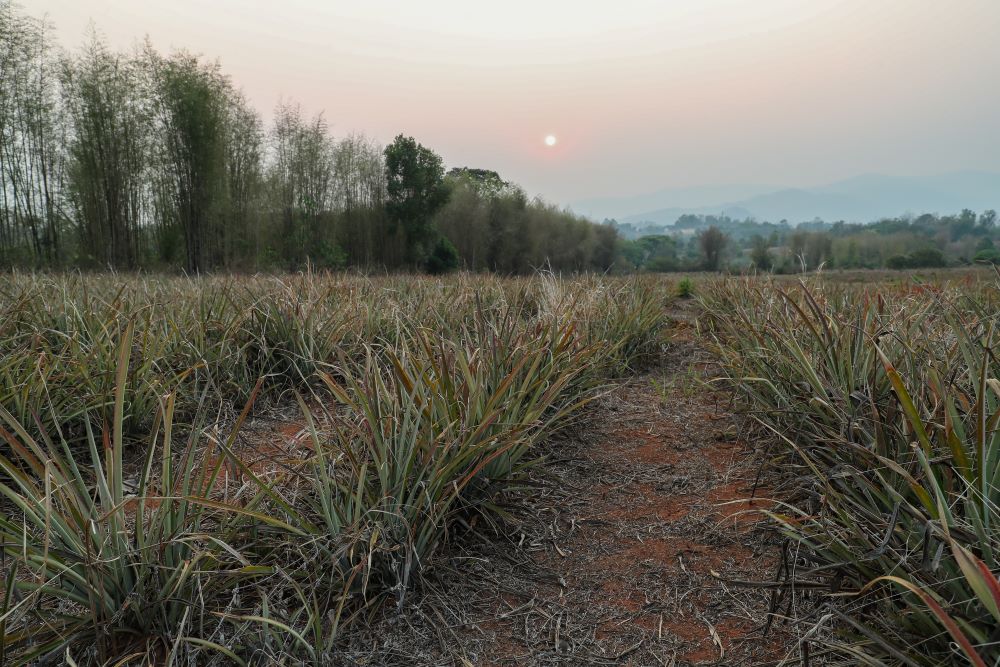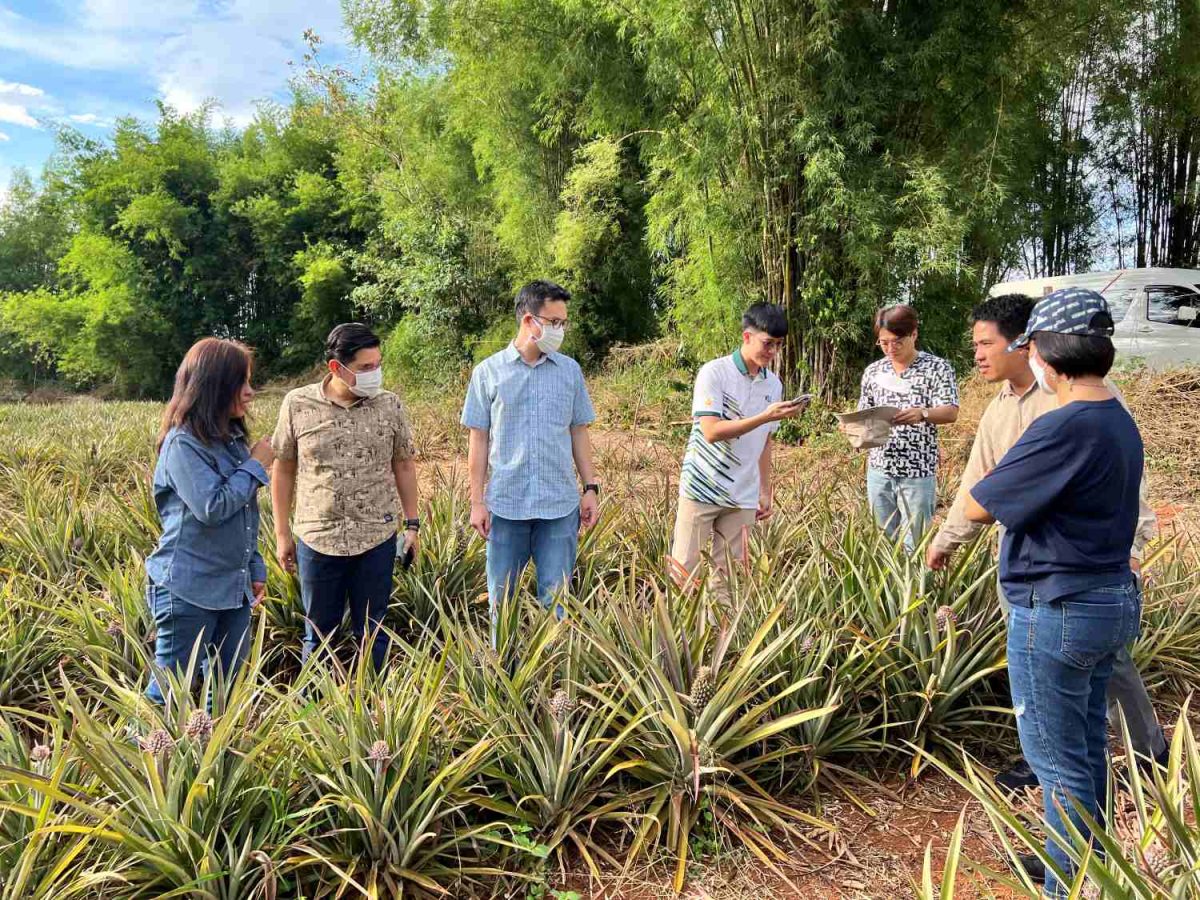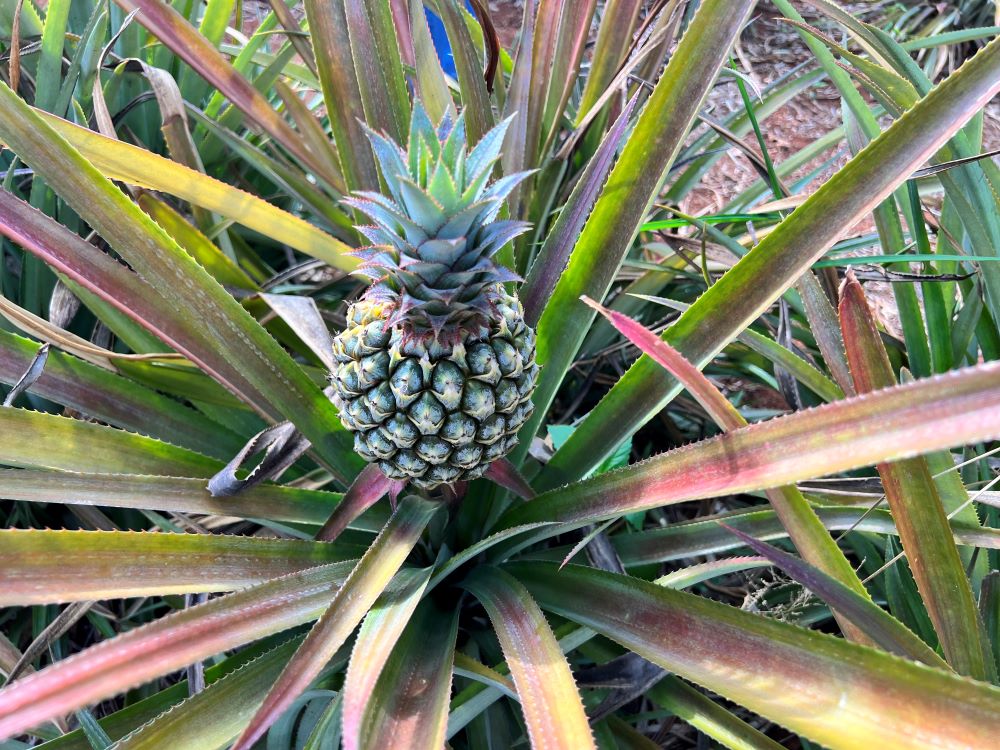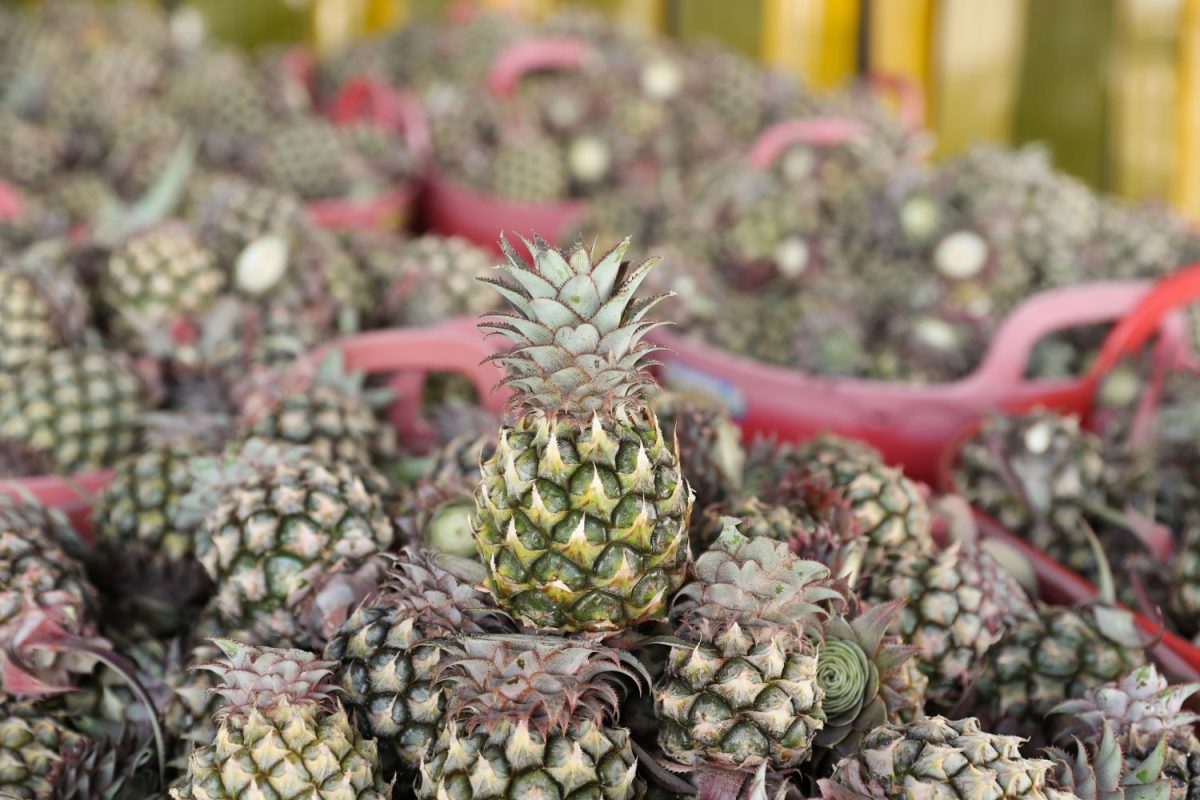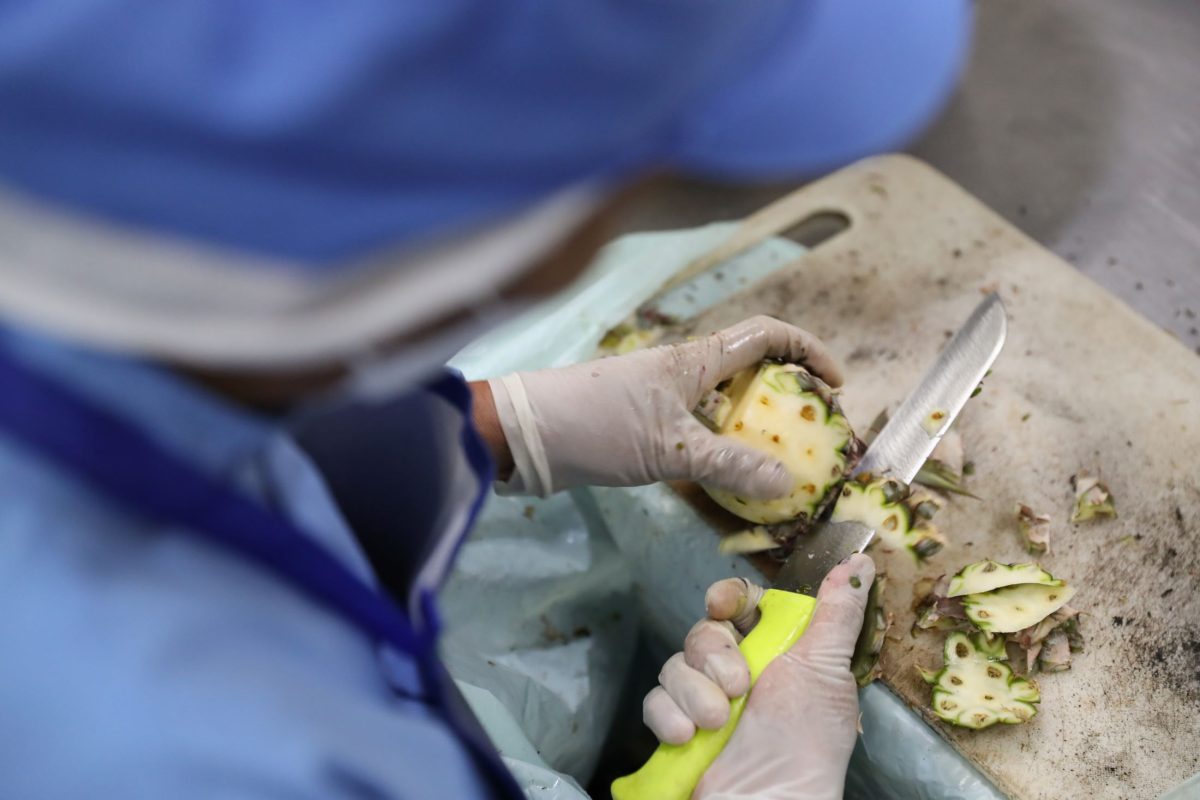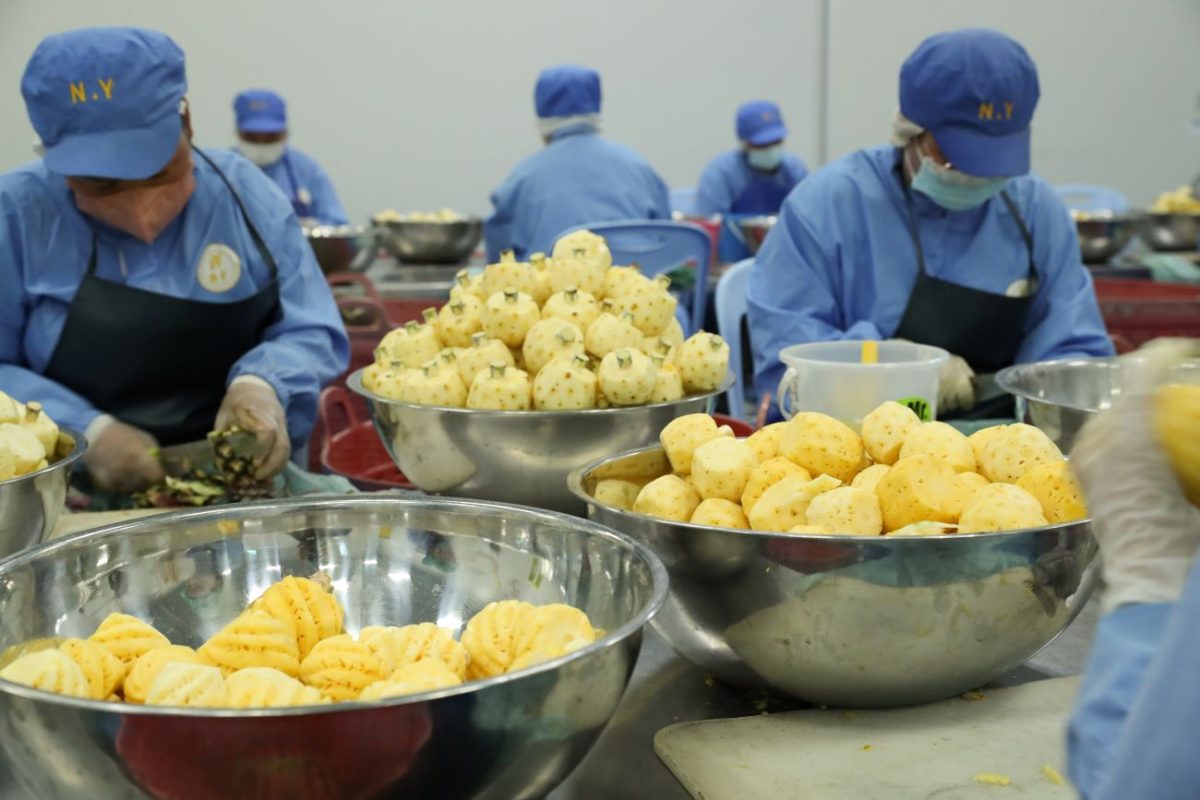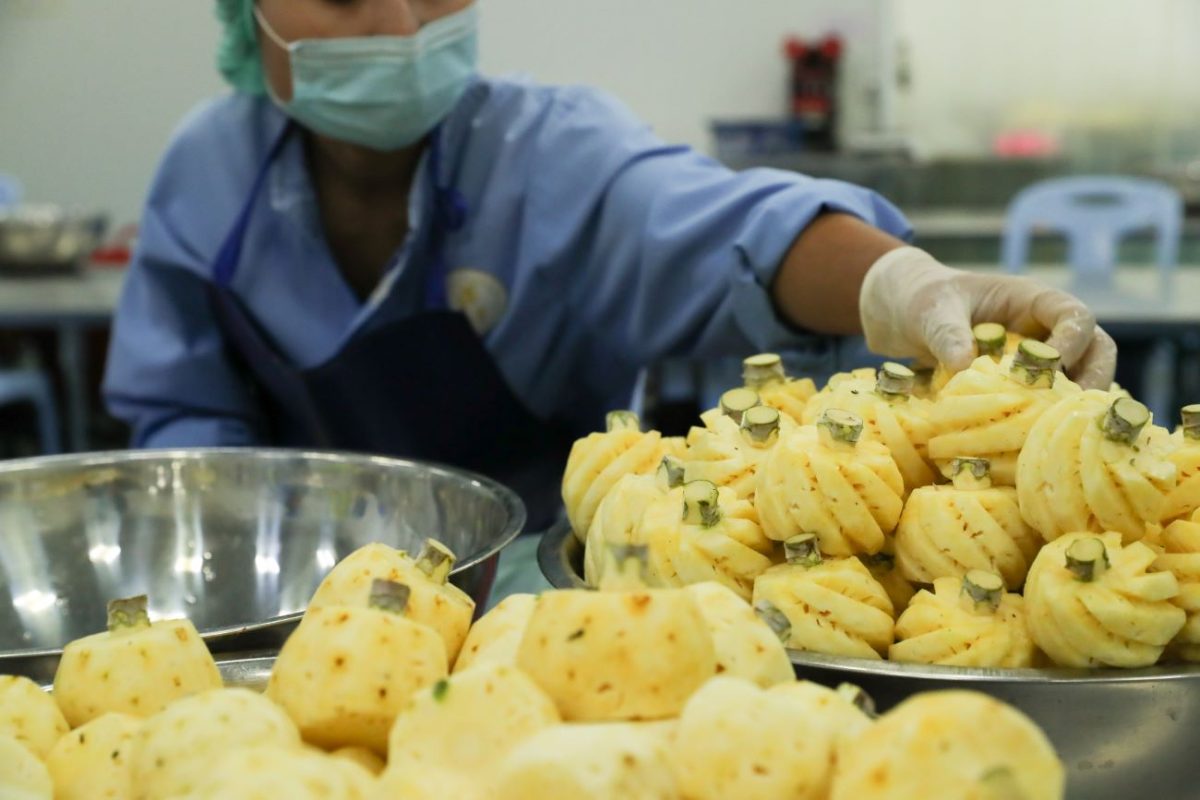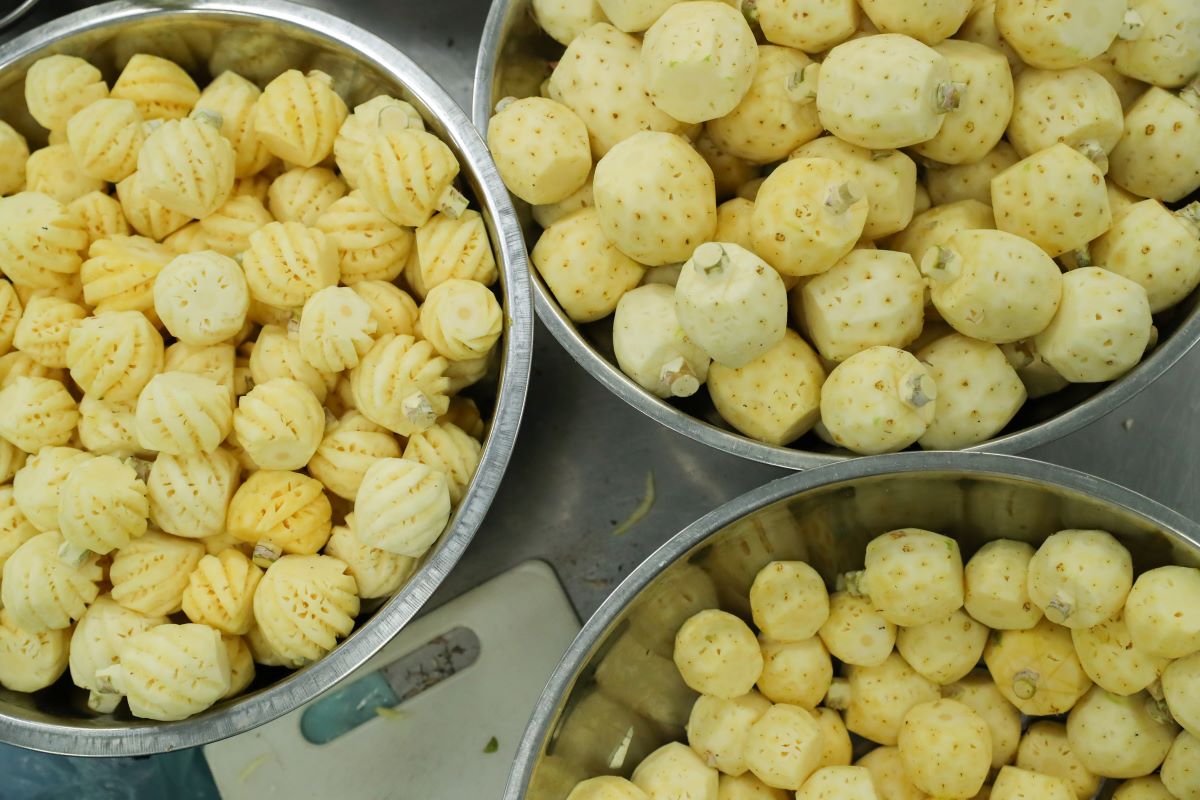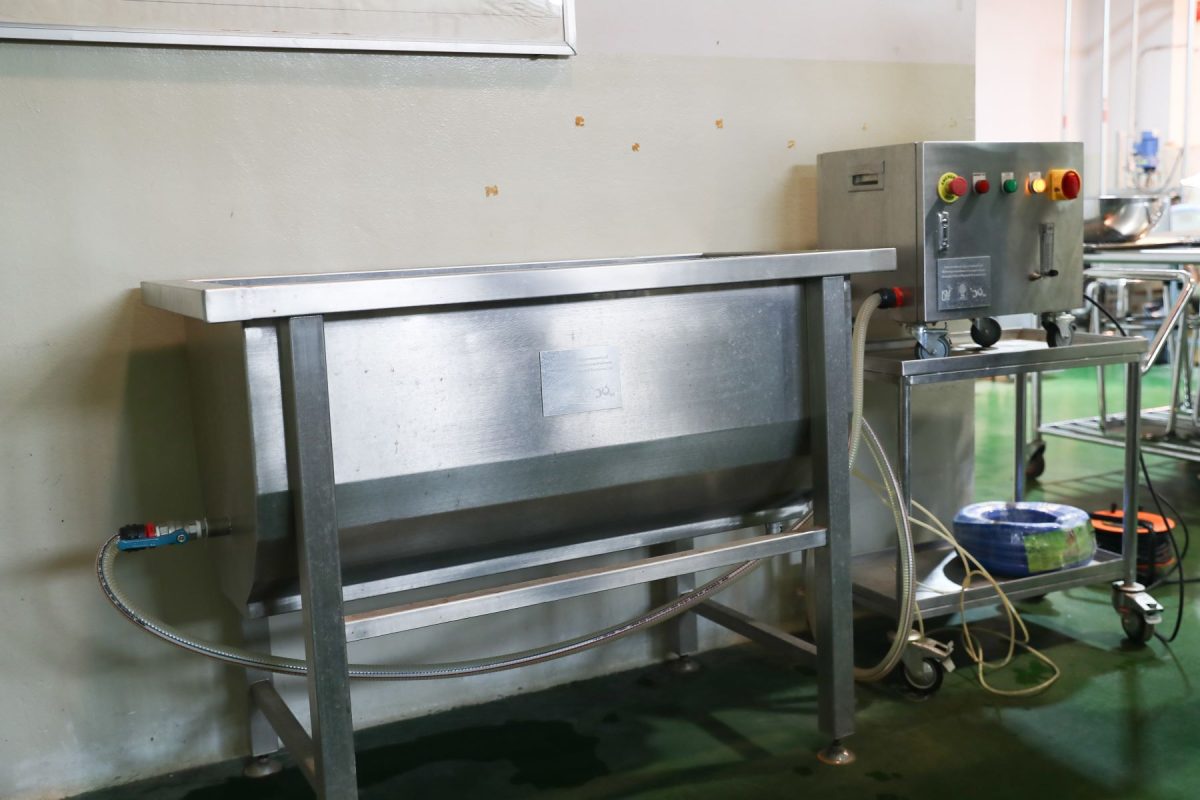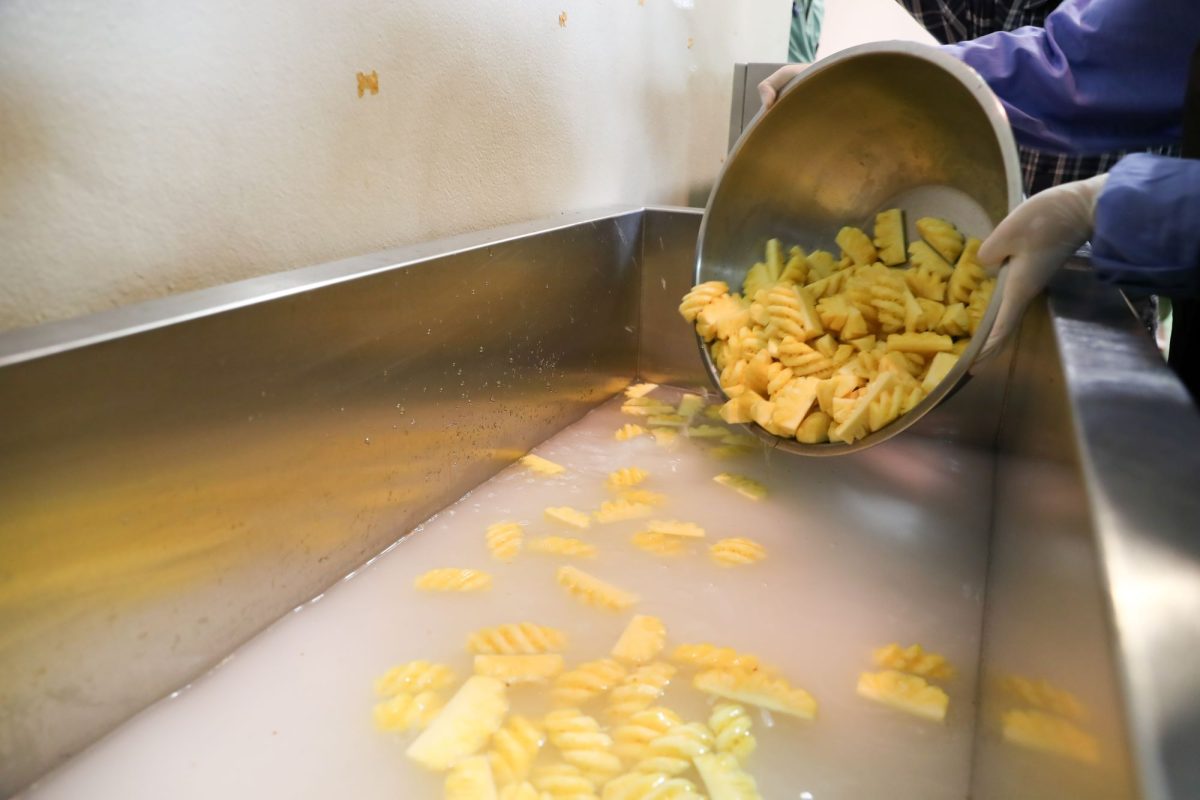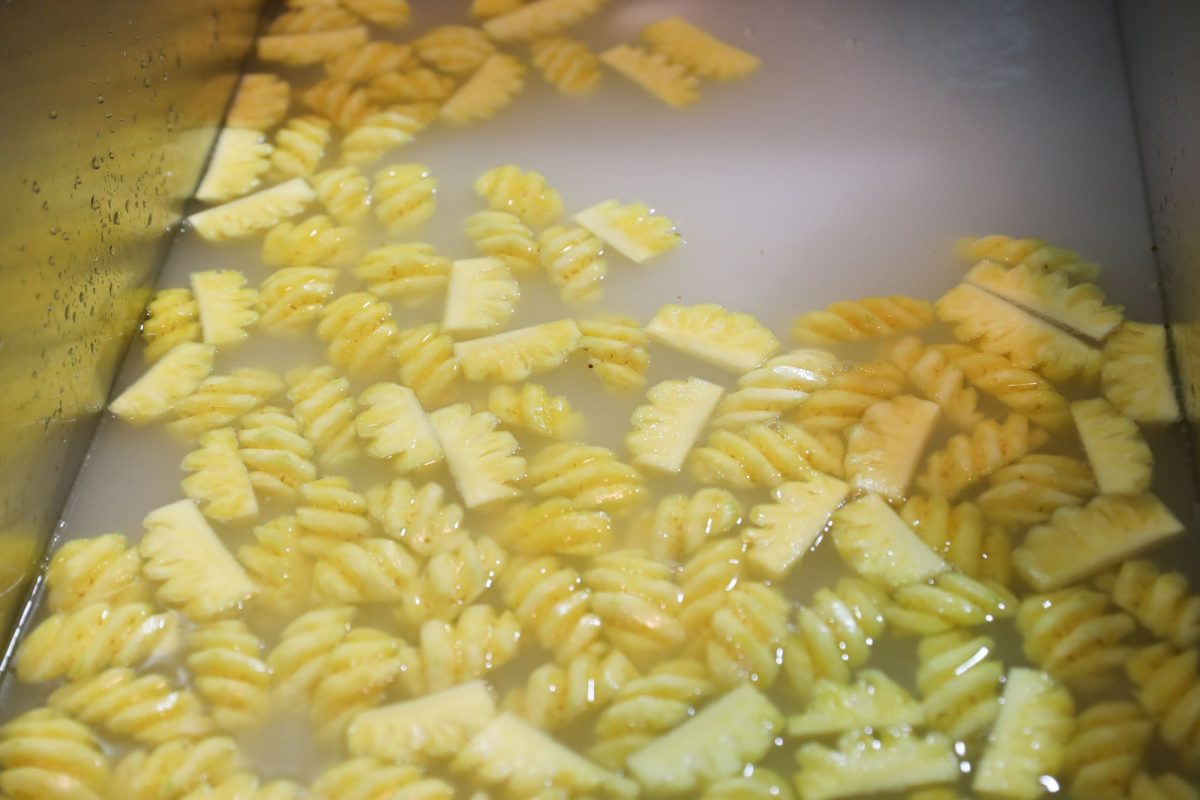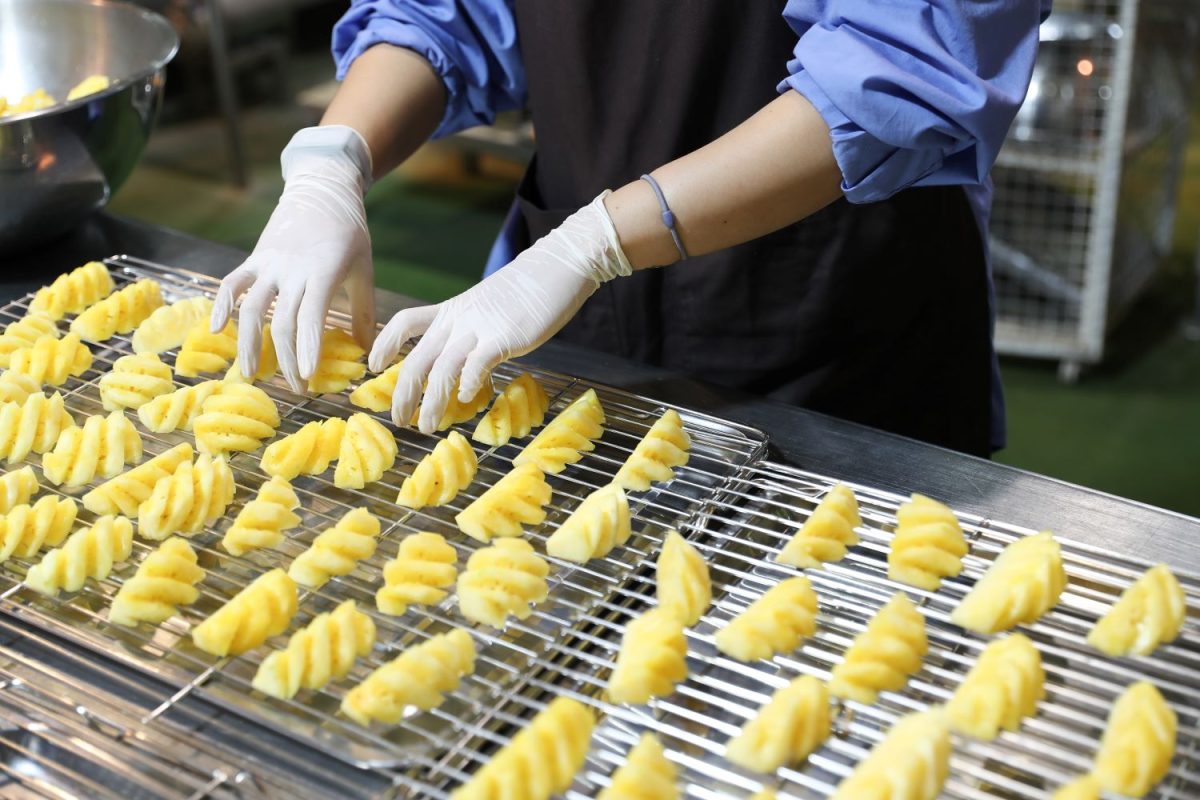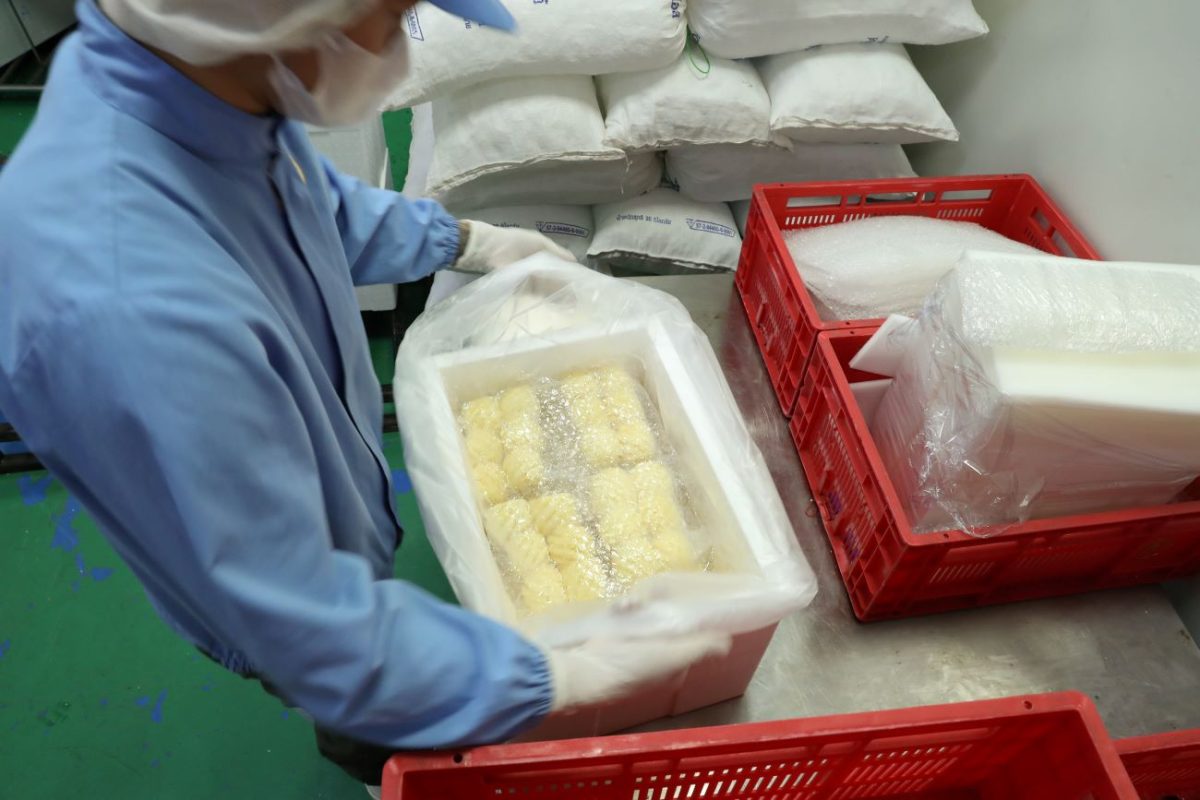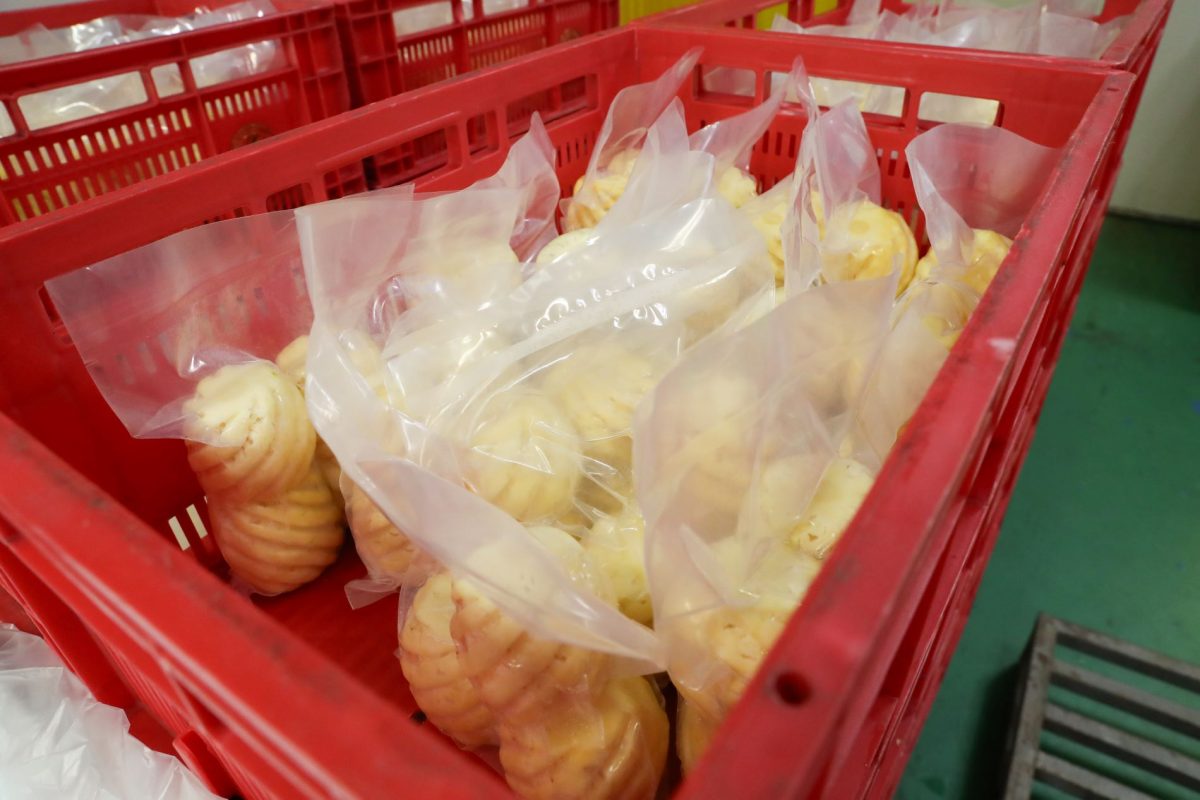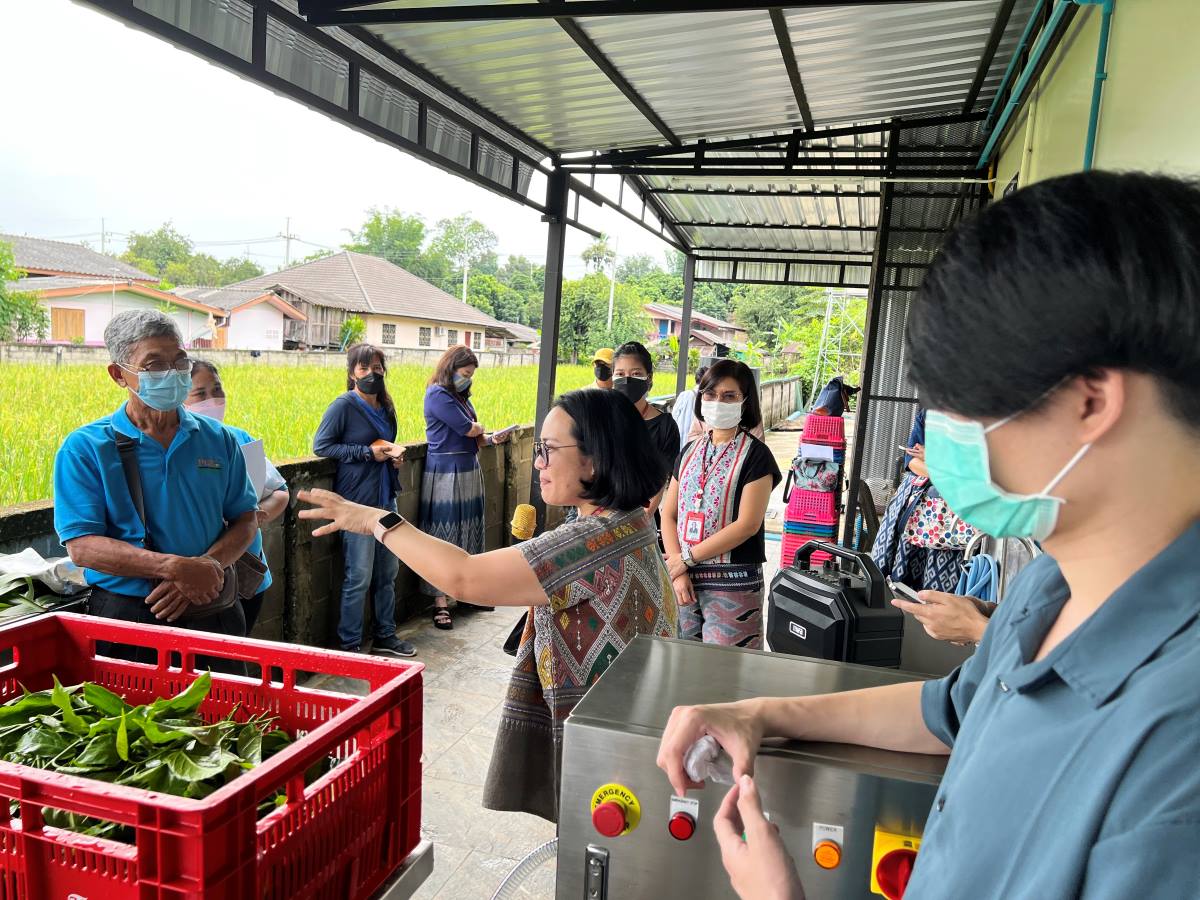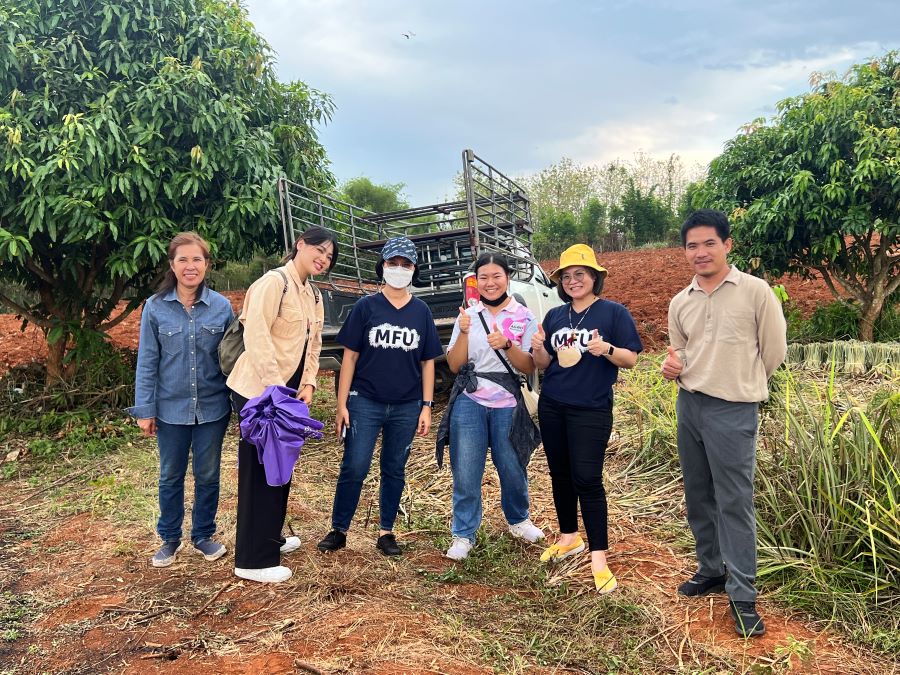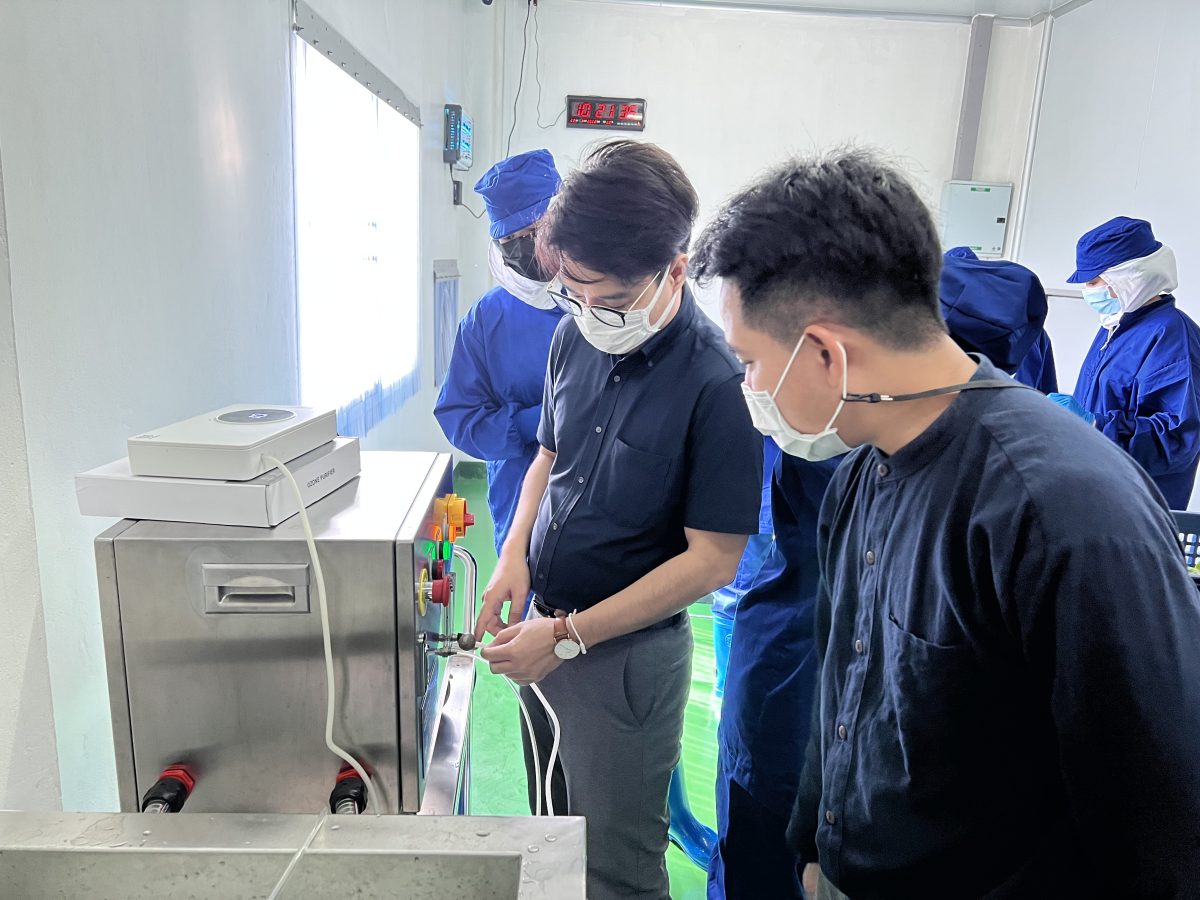Thailand is famous as a pineapple exporting country. And Thai canned pineapple products are number 1 in the world with a value of 20 billion baht (data January 2023). Phulae pineapple is a famous pineapple of Chiang Rai province. It is a local plant in Nang Lae Subdistrict, Tha Sut Subdistrict, Ban Du Subdistrict, Mueang District, Chiang Rai Province. Currently, Phulae pineapple is a GI product of Chiang Rai Province. It is considered an economic crop of Chiang Rai Province with potential. The distinctive characteristics of the Phulae pineapple are its small size, golden flesh, moderately sweet taste, and crisp core. Therefore, it is popular with consumers. Especially when peeled and trimmed to eat fresh. Also known as Pre-cut fruit ready for consumption It is becoming very popular among Chinese consumers. And currently there are a lot of exports to China. As a result, the production is not enough to meet demand. Moreover, pineapples are high in sugar, which allows microorganisms to grow well. Ready-to-consume pre-cut Phulae pineapples are easily spoiled and lose quality during transportation before reaching the consumer. Therefore, it is very important to use technology to help solve the export problem of ready-to-consume pre-cut Phulae pineapples. This is the origin of research and development of micro-nano bubble technology. or air bubble technology that is small at the micro and nano levels It is used to extend the life and maintain the quality of ready-to-eat Phulae pineapple products for export. The research team received funding to transfer technology and knowledge from the National Research Council of Thailand. Ministry of Higher Education, Science, Research and Innovation It is a result of cooperation between King Mongkut’s University of Technology Thonburi (KMUTT) and Mae Fah Luang University (MFU) to conduct research and transfer knowledge on the use of such technology to Phulae pineapple processing operators. and farmers in the Chiang Rai area and nearby areas
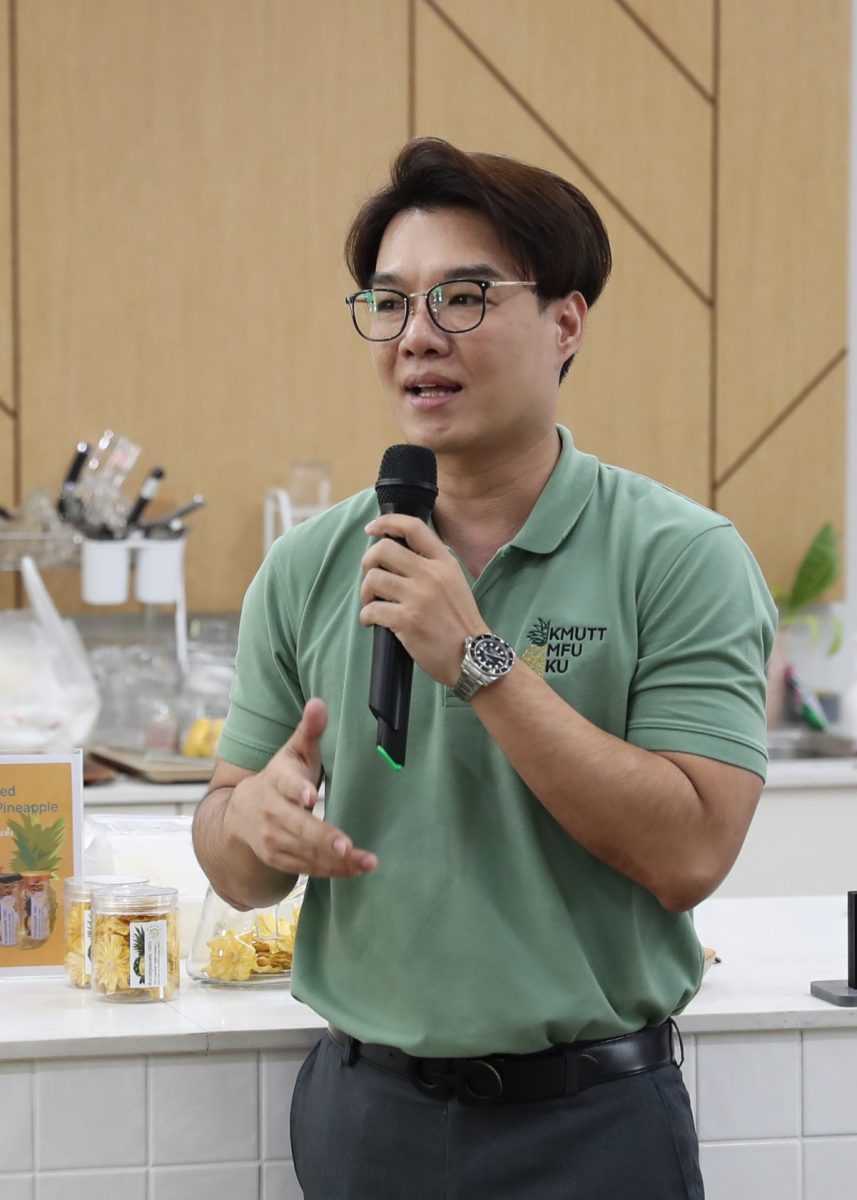
Assoc.Prof.Dr. NUTTHACHAI PONGPRASERT, lecturer at the School of Bioresources and Technology (SBT), KMUTT, as the leader of the research team and developer of a fruit and vegetable washing machine with micro-nanobubble gas bubble technology, said that the production process Ready-to-eat pre-cut fruits and vegetables are essential to ensuring that they are clean and safe for consumption. Especially safe from contamination from disease-causing microorganisms. In addition, because the cut salad vegetables are ready for consumption, Must go through various steps, including tearing, slicing, and trimming, which in those steps causes wounds which various substances within the cells come out from the wound caused by cutting Affects the acceleration of physiological and biochemical changes. and the rapid growth of contaminating microorganisms This causes rapid deterioration, resulting in a shorter shelf life. and resulting in economic damage, especially exports to foreign countries
For using micro-nano bubble technology Or a machine that produces air bubbles that are small at the micro-nano level to be used with Phulae pineapple. Assoc. Prof. Dr. NUTTHACHAI said that because ready-to-eat pre-cut vegetable or fruit products must not be contaminated with microorganisms or germs. cause disease Exceeds the standards set by the FDA, such as E. coli, yeast, salmonella, etc. because it is something that can be consumed immediately. Therefore, it must go through a very good cleaning process. The outstanding feature of micro-nano bubbles is the air bubbles that are created from them. It has a very small size. It is stable and can be dispersed in water for a long time. And has a high area per volume, increasing the ability to dissolve any substance or gas. Used for disinfecting, put into the washing water, such as chlorine compounds, ozone gas, etc., increasing the efficiency of washing and cleaning well and efficiently. Reduce the use of chemicals and reduce wastage of water used for washing as well
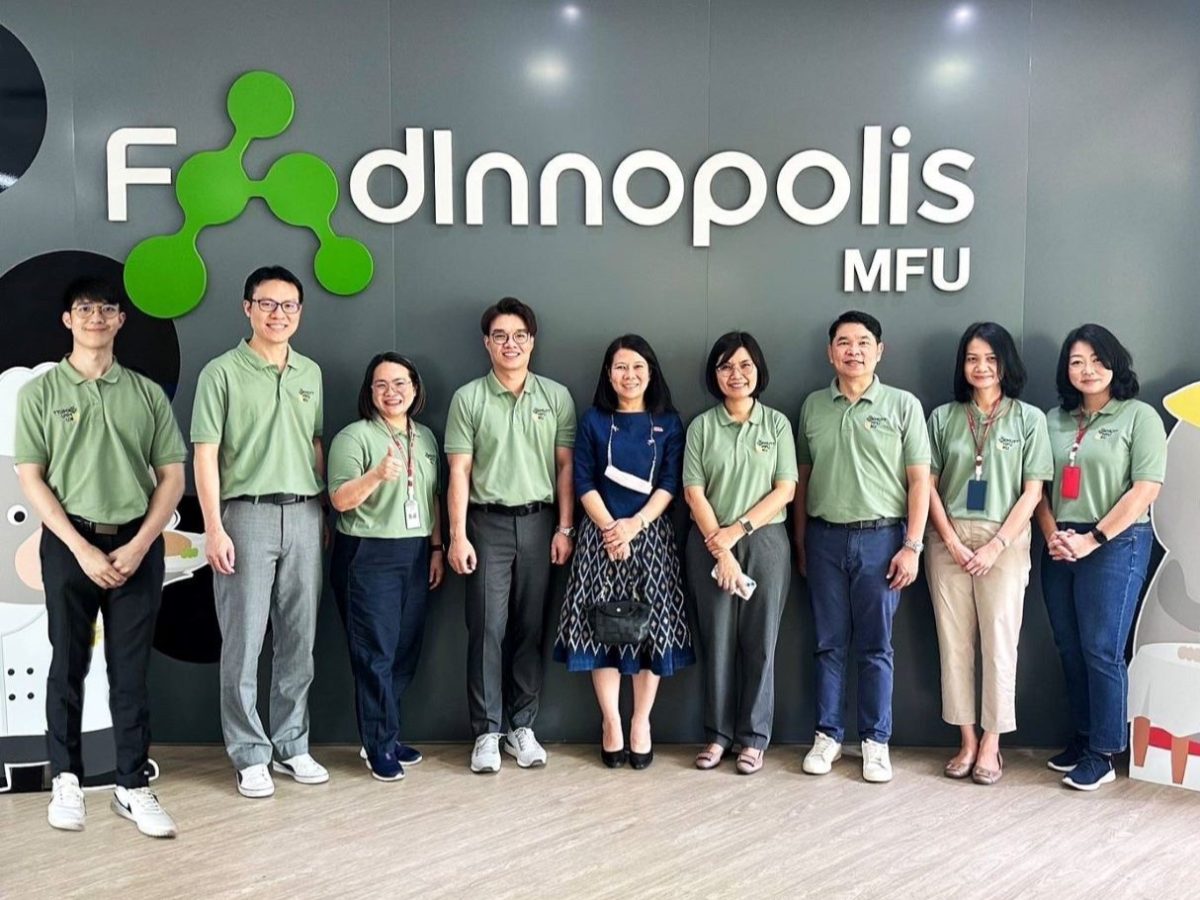
“Using micro-nano bubbles to wash fruits and vegetables that may have dirt stuck in the crevices of the skin or peel of the fruits and vegetables. Air bubbles scattered in the water It will help bring dirt stuck on the surface of fruits and vegetables to float away from the surface. And there is a greater chance that the microorganisms that come out will come into contact with the disinfectant that we put in. This makes the efficiency of disinfection even better. Therefore, in the case of trimmed Phulae pineapples, it is usually preferred to wash them with water added with chlorine to kill the germs. But the efficiency is not as good as it should be and it still requires a large amount of water for each wash. We therefore chose this micro-nanobubble technology to help increase washing efficiency. This is not just about washing vegetables or fruits. This technology can also be applied in a variety of applications such as agriculture and fisheries, for example. In the case of raising fish in a closed system with high fish densities which normally uses a method of pumping oxygen in But the efficiency is not enough and it may cause the fish to die because of insufficient oxygen. Therefore, micro-nanobubbles are used. for the ability to dissolve oxygen gas Helps oxygen stay in the water for a long time and has a higher oxygen content than general air bubbles. Makes fish grow well and reduce losses. It can also be applied to the treatment of wastewater that is contaminated with fat from households or industries. The micro-nano bubbles are able to capture fat that is distributed in wastewater and bring it to the surface, making it possible to effectively separate fat from wastewater and separate it for treatment. It is considered an application or use in the environment.”
The difference between fruit and vegetable washing machines with developed microbubble technology, Assoc. Prof. Dr. NUTTHACHAI said, is because KMUTT has aptitude and expertise in post-harvest technology innovation. We have a lot of research, so we know how to use and apply it to agricultural products, such as what kind of chemicals or gases should be used for this crop to be appropriate and effective in killing contaminants and maintaining the quality. Maximum fruits and vegetables
“Microbubble machine It’s not a new thing, nowadays anyone can build a machine. Or you can buy it from abroad, but the application or how to use it is something that is a body of knowledge, something that our research group has been studying for more than 10 years. In the past, this technology has been transferred to many private companies. And another highlight is The research team has knowledge about what vegetables or fruits are. What kind of conditions should be used? What kind of gas or chemicals must be used? How long does it take to wash? Although it is suitable and effective in disinfecting contaminants well without destroying the quality of fruits and vegetables. This is the highlight of the machine we developed. But for those who are not successful using microbubble technology. Because most of them purchase only the machine but do not know how to use it and there is quite a lot of misuse, causing most entrepreneurs in Thailand to wash their cut fruits and vegetables in the wrong way, which may affect safety of consumers as well.”
For the prototype Microbubble vegetable and fruit washing machine developed, it has a capacity of 100 liters for use in demonstrating and testing the washing of ready-to-eat pre-cut Phulae pineapples at the pineapple processing factory of Better Fruits Company Limited. which will be beneficial to the company and Mae Fah Luang University as a co-researcher who has knowledge about the process of cutting ready-to-eat fruits and vegetables and is a node in technology transfer. and provide an opportunity for groups of farmers in the area and nearby to come and try out this technology as well.
The benefits of microbubble technology are obvious. That is, it can help reduce production costs, reduce labor use, reduce washing time, reduce the amount of water used from normal washing having to change the water every time. But water using microbubble technology can be reused frequently. Resulting in reducing the use of resources, reducing the use of chemicals by half from the original need to add chlorine to the water to kill microorganisms in the proportion of 100%. But if microbubble technology is included, only chlorine will be used. 50%, while the cost of microbubble technology is a fixed cost and compared to imported fruit and vegetable washing machines that do not use microbubble technology, it is still cheaper than putting water into the vegetable washing machine. half foreign fruit
This is from the knowledge of micro-nano bubble technology that KMUTT has been conducting research studies continuously for more than ten years. In addition to transferring this knowledge to agencies and interested people in various regions, we have also developed machines and methods for using microbubble technology for the private sector, such as orchid export companies. and a company that washes pre-cut vegetables ready for consumption Used to extend the freshness of produce. which the results found The company that received the technology transfer was able to reduce costs from the washing process and product loss by more than 1 million baht per year. From such success, the results were expanded with the Phulae pineapple processing factory, Chiang Rai Province, to be piloted in the region. above Results from a 2-year experiment with Better Fruits Company Limited found that this technology can help reduce the amount of microbial contamination in ready-to-eat pre-cut Phulae pineapples by 30% compared to the traditional method. and reduce the amount of chemicals used for disinfection by more than 50%. The research team expects that after this, the micro-nano bubble technology will be put into practice in other industrial sectors in the future.
